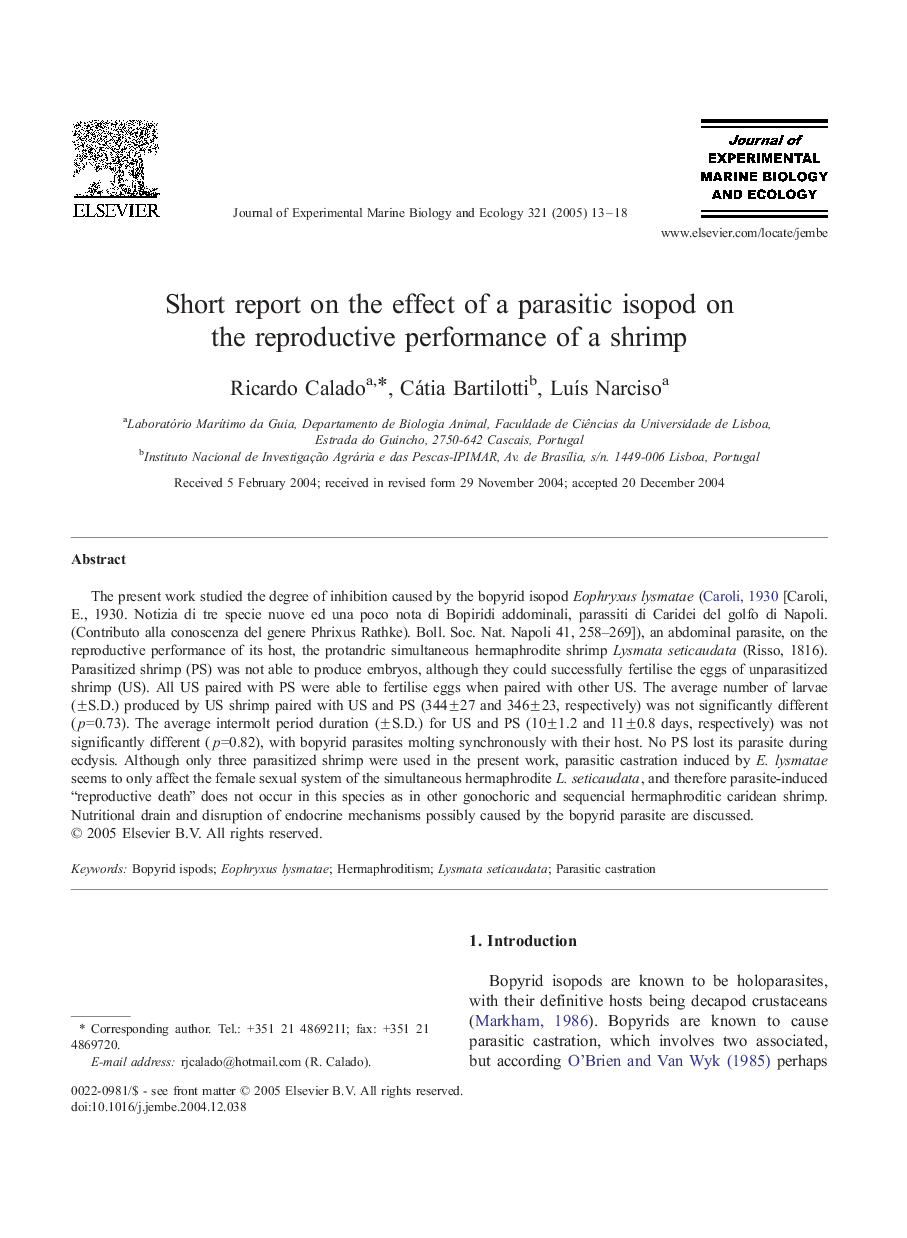| Article ID | Journal | Published Year | Pages | File Type |
|---|---|---|---|---|
| 9448696 | Journal of Experimental Marine Biology and Ecology | 2005 | 6 Pages |
Abstract
The present work studied the degree of inhibition caused by the bopyrid isopod Eophryxus lysmatae (Caroli, 1930 [Caroli, E., 1930. Notizia di tre specie nuove ed una poco nota di Bopiridi addominali, parassiti di Caridei del golfo di Napoli. (Contributo alla conoscenza del genere Phrixus Rathke). Boll. Soc. Nat. Napoli 41, 258-269]), an abdominal parasite, on the reproductive performance of its host, the protandric simultaneous hermaphrodite shrimp Lysmata seticaudata (Risso, 1816). Parasitized shrimp (PS) was not able to produce embryos, although they could successfully fertilise the eggs of unparasitized shrimp (US). All US paired with PS were able to fertilise eggs when paired with other US. The average number of larvae (±S.D.) produced by US shrimp paired with US and PS (344±27 and 346±23, respectively) was not significantly different (p=0.73). The average intermolt period duration (±S.D.) for US and PS (10±1.2 and 11±0.8 days, respectively) was not significantly different (p=0.82), with bopyrid parasites molting synchronously with their host. No PS lost its parasite during ecdysis. Although only three parasitized shrimp were used in the present work, parasitic castration induced by E. lysmatae seems to only affect the female sexual system of the simultaneous hermaphrodite L. seticaudata, and therefore parasite-induced “reproductive death” does not occur in this species as in other gonochoric and sequencial hermaphroditic caridean shrimp. Nutritional drain and disruption of endocrine mechanisms possibly caused by the bopyrid parasite are discussed.
Related Topics
Life Sciences
Agricultural and Biological Sciences
Aquatic Science
Authors
Ricardo Calado, Cátia Bartilotti, LuÃs Narciso,
